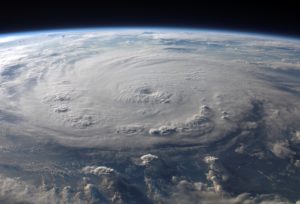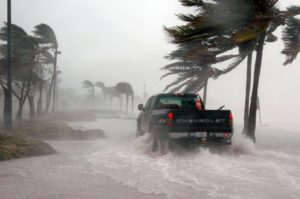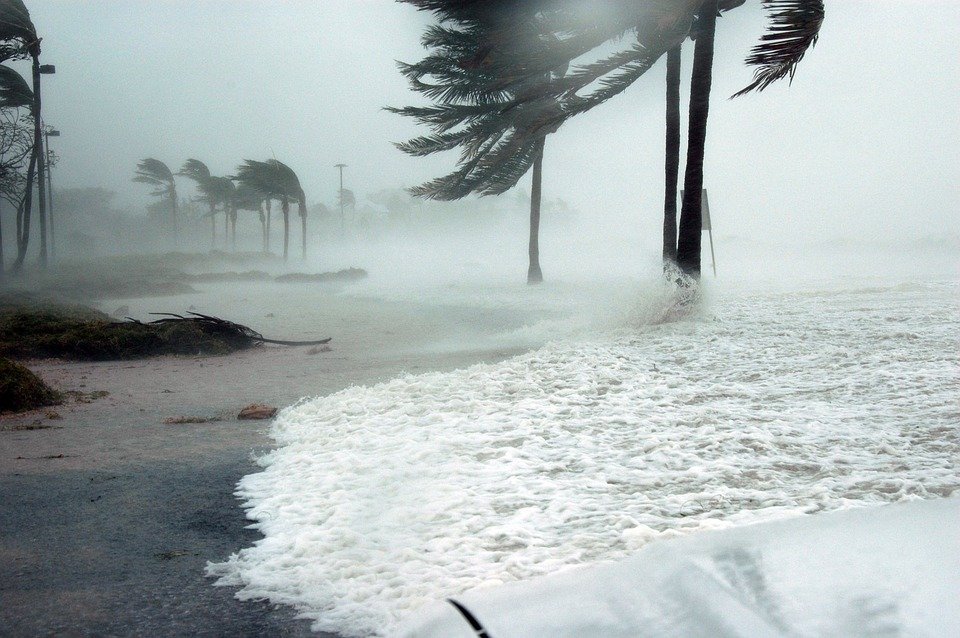This September, we’ve witnessed the devastating effect of hurricanes. Let’s for a moment stray away from the subject and forget about the consequences of hurricanes on freight forwarders. Instead, let’s remember and recognize the safety issues and people’s threatened well-being once a hurricane starts to approach. The good thing about the freight industry is that forwarders have a chance to be the bearers of supplies and all the necessities. However, with hurricanes affecting freight forwarders in many ways, that help might be delayed.
If you were to take a look at the relocation industry analysis, you would see that as much as 65.51% of moves were interstate, with a large portion of those moving endeavors being international. And that’s when freight forwarding becomes indispensable. If you are a freight forwarder, you are very much aware that unpredictable circumstances are bound to happen. It comes with the job. But not a lot of those circumstances will be as disruptive to your business as natural disasters or, more precisely, hurricanes.

Since these are not situations over which you have any control or power, the only thing you can do is learn what to expect, as well as try to minimize the consequences. And this is the first thing you should be aware of when starting a moving company or a freight forwarding business – sometimes, you will just have to lay low and wait for the storm to pass.
Hurricanes affecting freight forwarders before the storm
Thanks to the highly-sophisticated weather technologies we have at our disposal today, we are able to predict a hurricane before it hits. And that allows us to prepare for it. All you have to do is constantly check the National Hurricane Center and you will have all the pieces of information about the latest threats. No matter the severity of the storm, the procedures freight forwarders follow are usually the same. All efforts are put towards moving freight in and out of the area where the storm is expected to hit. If you are living in the states, then you know that a hurricane rarely hits only one state.
Now, moving freight is not a cheap process. Judging by the information that an 8,000 containership can consume as much as 225 tons of fuel per day, you can draw your own conclusions. Even though this will be a huge financial blow, it’s much better to suffer monetary setbacks than physical ones. You simply have to know how to manage the risks, that is you have to understand what takes precedence – money or other aspects.
When it comes to ports, they can expect themselves having to store extra cargo. If the storm is bound to hit in a short period of time which makes it impossible for the cargo to be dropped at its designated location, the only thing left to do is to move that cargo to the nearest port. And that will entail a lot of logistical planning and organization.
[banner]
Hurricanes affecting freight forwarders during the storm
There isn’t much activity once the storm starts raging. And by much we mean none. All operations in the affected area come to a halt during a hurricane. The only freight that will be moving is the one that different organizations and FEMA send out as emergency relief supplies.

But even these supplies don’t go in the affected zone directly. They are sent to locations just outside the storm zone so that they are ready to be used as soon as the roads become clear. Seems like the only thing you can do is sit this one out.
The storm did its thing – now what?
First of all, congratulations on surviving this terrifying event and hope can only remain that all of your family members stayed safe. In case you suffered a big blow when it comes to your finances and you lost a house or at least some part of it, chances are you might decide to move. Even if it isn’t the peak season for moving – the right time for moving is when you find it to be necessary. Should you decide to ship something to the new address or receive a shipment from your relatives across the ocean, you will be met with increased freight rates.
High-impact hurricanes, such as Hurricanes Harvey and Irma, can cripple a large portion of the US refining capacity. In these situations, diesel fuel usually goes up, which has a negative impact on shippers. And even just a 1% increase in freight rates could mean a significant blow for those paying them. After all, shipping your belongings across the world is bound to cost a pretty buck.

Once the hurricane passes, the business will pick up as usual. It might even pick up at a faster pace at first. What’s important is that the worst is behind us – now we can all focus on remedying the situation. Of course, the negative effects of a hurricane aren’t so easy to forget. No one can lie to you and we at Movers Development are not about to be the ones to do it. But all of this will pass!
The bottom line
With hurricanes affecting freight forwarders in so many ways (none of them being positive), one can only wonder whether weathering the storm is possible. While there are going to be many delays and setbacks, we are sure no one will hold them against you. After all, you’ve found yourself amidst a natural disaster – just like millions of people. At least freight forwarders have a chance to help people across the globe. Delivering just one package of emergency relief supplies will be of great help. Imagine what you could achieve if you used your full potential!






